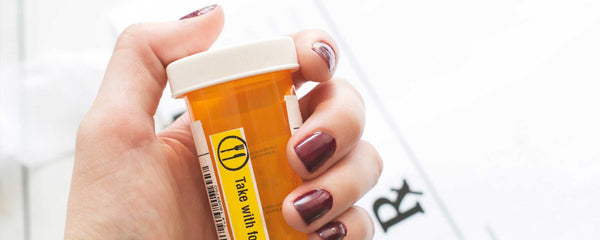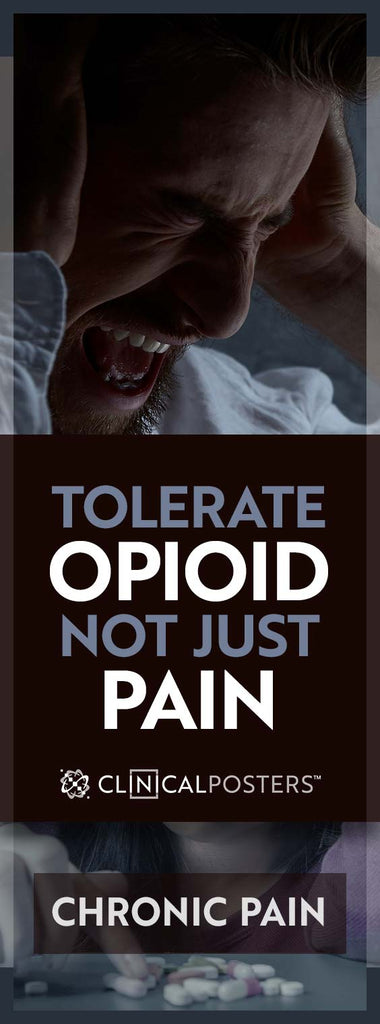It is undeniable. Opioids are being abused.
Opioid Abuse is Not New
Most pain has identifiable trauma as its origin. Some is degenerative. Trauma pain can last weeks. Whether the source is migraines, backache, hip or knee pain, chronic pain lasts more than three months—often many years. In the midst of an opioid epidemic, why would anyone want a prescription for it? Those with an addiction may have a simple answer. How about those with chronic pain who do not have an addiction?
Opium has a long, largely unregulated history. It may have arrived in America on the Mayflower. Around 68% of the more than 70,200 drug overdose deaths in 2017 involved an opioid, with or without a prescription. Nearly a quarter of patients receiving long-term opioid therapy in a primary care setting struggle with opioid addiction. So legislation was passed in 2018 that governs how opioids are dispensed.
It is undeniable. Opioids are being abused. So are vaping (e-cigarettes) and alcohol. A key difference is that opioids are prescribed by medical doctors. Much of the debate involves blamestorming—fining manufacturers and punishing physicians. Over 2,000 opioid lawsuits are aimed at various drug companies. An Oklahoma judge ordered Johnson & Johnson to pay $572 million as part of the first trial of an opioid maker sued by a state for the human and financial costs of the prescription painkiller crisis. Legislation monitors doctors who prescribe opioids and establishes guidelines or general action plans.
Preferred for Pain
Alternative treatments abound, but there is no easy solution to chronic pain. Patients are told to stretch, walk, and swim. Over-the-counter and prescription-strength ibuprofen, naproxen, and meloxicam are available. Antiepileptic drugs like gabapentin are offered that mainly make you drowsy. Epidural (cortisone) injections temporarily relieve pain. Weight loss can reduce pressure on joints. Pain management teams may employ cognitive behavioral therapy, Tai chi (taiji), physical therapy, and affirmations.

Suppose your medicine cabinet is well-stocked and you have been through all the pre-opioid treatments. Your gabapentin prescription gives you a good night’s sleep. Awakening to unusually intense pain, you have breakfast and vitamins as the lowest entry point to a possible cure. Ice packs and ointments are ineffective attempts to bring down inflammation this day. Taking it up a notch, you pop a couple of ibuprofen or Motrin. By midday, you literally ache for an effective pain reliever. At this point, how do you define effective?
- A remedy that suppresses and manages pain well enough to function.
- The aggregate harm should not overshadow benefit to patient.
An outsider will tell you to avoid opioids. But you have a prescription. It has been a week since you had one. Do you endure the pain, go sit in urgent care, or take the opioid?
Opioids relieve pain by changing the way your body senses pain. They do not cure health problems, but they help you manage the pain. If you decide to take opioids, here are some things to remember.
- Keep your doctor informed. You can develop opioid use disorder. Moderate to severe opioid use disorder is sometimes called addiction. The risk is higher if you have a history of substance use. Your doctor will monitor you closely.
- Make a treatment plan. The goal is to be able to function and do the things you need to do, even if you still have some pain. You might be able to manage your pain with other non-opioid options.
- Be aware of the side effects. In addition to constipation, dry mouth, and nausea, over time, you may build a tolerance, requiring higher doses. As your body gets used to opioids, you develop physical dependence. Suddenly cessation may cause withdrawal symptoms.
Most doctors will only discuss opioid prescriptions face-to-face. If a patient sends an email message, it may not be acknowledged. This is because of legislation and departmental oversight surrounding opioid use.
Whether to use opioids largely depends on what you, as a patient, are able to tolerate. You may not be pain-free. But you should be able to function without long-term consequences. The FDA warns that abruptly stopping opioids or rapidly decreasing the dose can cause “serious withdrawal symptoms, uncontrolled pain, psychological distress, and suicide.”
To support the writing of useful articles about prescriptions, ClinicalPosters sells human anatomy charts, scientific posters, and other products online. You may sponsor specific articles or remit a small donation.
ClinicalPosters sells human anatomy charts, scientific posters, and other products online to offset expense of the writing useful articles about prescriptions. Slide extra posters into DeuPair Frames without removing from the wall.
Show your support by donating, shopping for ClinicalPins, or leaving an encouraging comment to keep the research going.
To support the writing of useful articles about prescriptions, ClinicalPosters sells human anatomy charts, scientific posters, and other products online. You may sponsor specific articles or remit a small donation.
ClinicalPosters sells human anatomy charts, scientific posters, and other products online to offset expense of the writing useful articles about prescriptions. Slide extra posters into DeuPair Frames without removing from the wall.
ClinicalPosters sells human anatomy charts, scientific posters, and other products online. You may remit a small donation.
You can support the writing of useful articles about prescriptions by sponsoring specific articles or remitting a small donation. Visible content is optimized for device size.







 Romance & Health Intertwine. Fall in love with a captivating romance miniseries that explores the essence of well-being. Become a ClinicalNovellas library member for heartwarming tales.
Romance & Health Intertwine. Fall in love with a captivating romance miniseries that explores the essence of well-being. Become a ClinicalNovellas library member for heartwarming tales.




